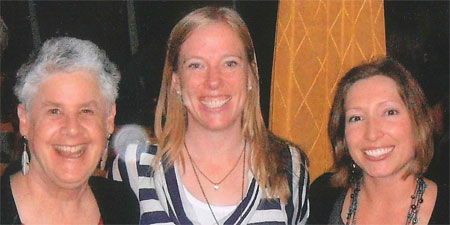Maureen Weiss, Ph.D., professor in the School of Kinesiology, and colleagues and former students Nicole Bolter (PhD, 2010, UMN) and Lindsay Kipp (PhD, 2012, UMN), are recipients of the Outstanding Research Writing Award for their article published in Volume 87 of Research Quarterly for Exercise and Sport (RQES). The Research Council of the Society for Health and Physical Education (SHAPE) recognized the authors at their annual meeting on March 16. This award identifies one article in each yearly volume of RQES that characterizes an outstanding contribution of scholarship and writing quality from among all manuscripts published that year. This is the seventh time that Weiss has personally been recognized with this scholarly writing award.

The full citation is, Weiss, M. R., Bolter, N. D., & Kipp, L. E. (2016). Evaluation of The First Tee in Promoting Positive Youth Development: Group Comparisons and Longitudinal Trends. Research Quarterly for Exercise and Sport, 87, 271-283.
Here is a brief abstract: Purpose: This manuscript represents the third in a series documenting our longitudinal evaluation of The First Tee, a physical activity-based youth development program that uses golf as a vehicle for teaching life skills and enhancing developmental outcomes. Previous phases of our project: (a) established initial data-based evidence of effectiveness through cross-sectional and qualitative methods (Weiss et al., 2013), and (b) provided validity and reliability for a measure of life skills transfer in three studies using mixed methods (Weiss et al., 2014). The purpose of the present phase was to: (a) compare youth in The First Tee to youth in other activities on life skills transfer and developmental outcomes, and (b) examine change and stability over three years in life skills transfer among youth in The First Tee. Method: In Study 1, youth participating in The First Tee (N = 405) and a comparison group (N = 159) completed measures of key constructs. In Study 2, a longitudinal sample of 192 youth participating in The First Tee completed the life skills transfer measure for three consecutive years. Results: Study 1 revealed that youth in The First Tee compared favorably to youth in other activities on 5 of 8 life skills and 6 of 8 developmental outcomes, and Study 2 showed that scores improved or remained stable for life skills transfer over time. Conclusion: Results from both studies show that The First Tee is effective in teaching for transfer of life skills and promoting developmental outcomes.



